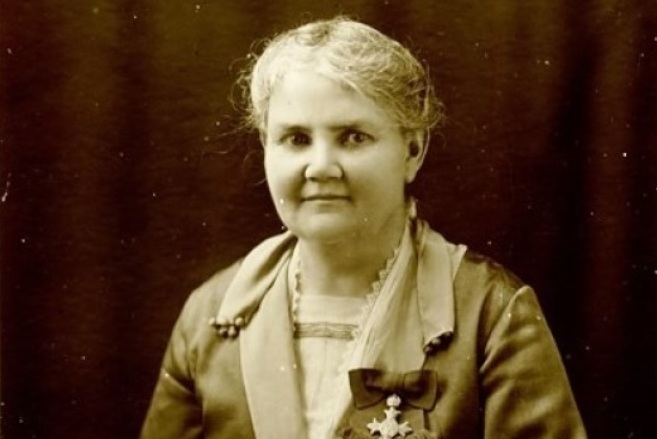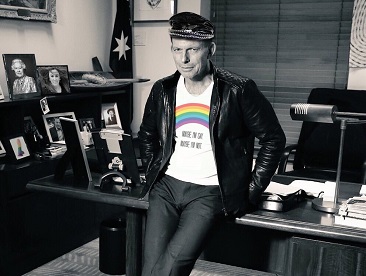The online abuse of Clementine Ford and her subsequent shaming of the perpetrator has caused momentum for a general campaign to bring the dark, dirty world of misogynistic abuse into the light, writes Dr Benjamin T. Jones.
“You better not tell anyone about this, OR ELSE!”
It is the catchphrase of bullies around the world. They know they have done something wrong, they are ashamed of their actions and want them to be hidden. They want to continue their harassment, violence, or intimidation and they want their victims to protect them with silence.
When we see verbal and physical bullying in the school yard, we urge the victims to be brave and speak out. And yet, for some perverse reason, if the bully is a random male on the internet and the receiver of the abuse is a woman who dares to express an opinion online, the message changes to “suck it up and move on”. But most importantly, do not share the abuse or make the abuser accountable for their words and actions.
Popular feminist writer, Clementine Ford was recently in the news after a hotel manager was fired by Meriton for online abuse. Michael Nolan sent Ford an unsolicited, single-word message: “slut”. When Ford brought this to Meriton’s attention, the hotel chain confirmed that Nolan’s employment had been terminated.
Illogically, but predictably, Ford was attacked with renewed venom for supposedly getting Nolan fired.
Actress @clementinesford cops Twitter abuse, says she's happy to be mistaken for @clementine_ford: https://t.co/QC31fpa3uq #IStandWithClem
— Daily Life (@DailyLifeAu) December 2, 2015
How does this make sense? Ford did not invite a conversation with Nolan or coerce him into insulting her. Nor does Ford oversee the standards and protocols at Meriton. Nolan made a decision and was held accountable. Actions have consequences. Is this not a general truism? And yet, when it comes to the abuse of women, we still face a culture that insists the victims are (at least partly) responsible for the actions of the perpetrator.
As a high profile feminist, Ford receives a torrent of threats, illicit images and general vitriol every day. She has catalogued a small amount of it on her website. Her decision to share some of this abuse publicly and to bring it to the attention of the abuser’s employer is entirely her prerogative.
A general campaign is gaining momentum to bring the dark, dirty world of misogynistic abuse into the light.
As political and social commentator Van Badham has argued:
'If the things said by men to women on the internet were said by men to their female colleagues in workplaces, they would be fired. If they were said by men to women in public spaces, they would be removed.'
The internet should not be a safe place for sexist attitudes no longer accepted by the vast majority in civilised society. As many hapless employees have discovered after boasting of using a sickie to go the beach, Facebook is not a private forum with immunity from real word consequences.
Comedian and columnist Catherine Deveny‘s approach to online abuse is both valid and effective. Like Ford, she receives extremely hostile – sometimes violent – and usually gendered attacks from her various detractors.
Deveny recently tweeted:
When people abuse me on Facebook I send a message to their partner and/or employer and/or school. It works well. pic.twitter.com/cGCtpZ461G
— Catherine Deveny (@CatherineDeveny) November 25, 2015
In response to all this, I posted a couple of tweets confirming my support, for whatever it is worth, for women who choose to share and shame when attacked online. The response was generally positive but not without critics. As an academic, I give great importance to respectful and rational debate. I stress to my students that they must avoid logical fallacies, strawman arguments and personal attacks.
For this reason, the negative responses were particularly frustrating. I was repeatedly accused of ignoring or not caring about male victims of online harassment. What infantile logic concludes that standing up for women must equally mean indifference or hostility to men? Imagine a world where you can never advocate one cause without also mentioning all causes. The Twitter character limit would prove problematic.
Along with the nonsense rebuttals, I was taken back by how quickly I found myself – not my argument – attacked. Complete strangers quickly took to the Twittersphere to label me “gutless”, “poseur”, a “mangina” and a “social justice warrior” (social justice is a term of opprobrium, now, apparently).
Ad hominem attacks are a rarity for me. That is white male privilege for you, I suppose. Generally speaking, mild personal abuse tends to pop up only after I share my thoughts against sexism, racism, Islamophobia or homophobia. I cannot begin to imagine what it would be like to receive constant, vulgar, abusive and threatening messages. To carry on making the case for gender equality while shrugging off the most vile of attacks, Clementine Ford and others like her have my deepest admiration.
It's time to support @clementine_ford & each other: #endviolenceagainstwomen leader @KerriSackville joins #abc730 https://t.co/KI3dkNtInF
— abc730 (@abc730) December 4, 2015
The internet is a wonderful thing and it has given a voice to millions of hitherto voiceless people. Digital technology has radically democratised communication. Once the domain of politicians and media moguls, anyone with access to a computer and the internet can instantly share their thoughts with thousands through blogs and social media.
As ever, great power brings with it great responsibility. For those who use these wonderful advances to harass, threaten and intimidate women online, it is no defence to claim your boss might fire you or your wife might divorce you. If your exposed messages would bring shame to your company or family then you should feel ashamed or, better yet, don’t send the message.
Ending violence against women is not a feminist issue only, it is something all enlightened, civilised people should be passionately committed to.
As then Chief of the Army Lieutenant General David Morrison famously said:
“The standard you walk past is the standard you accept."
Sending disgusting,unsolicited, abusive, messages to women and then demanding their silence in order to protect a male reputation is a standard we should all emphatically reject.
Dr Benjamin T. Jones is an adjunct fellow at the School of Humanities and Communication Arts at the University of Western Sydney. You can follow Dr Jones on Twitter @BenjaminTJones1 or on his blog, Thematic Musings.
Male troll logic: I can harass women online but they are obligated to keep it quiet. Share the hell out of it. #endviolenceagainstwomen
— Dr Benjamin T. Jones (@BenjaminTJones1) December 4, 2015
This work is licensed under a Creative Commons Attribution-NonCommercial-NoDerivs 3.0 Australia License
Monthly Donation
Single Donation
Be better. Subscribe to IA for just $5.









